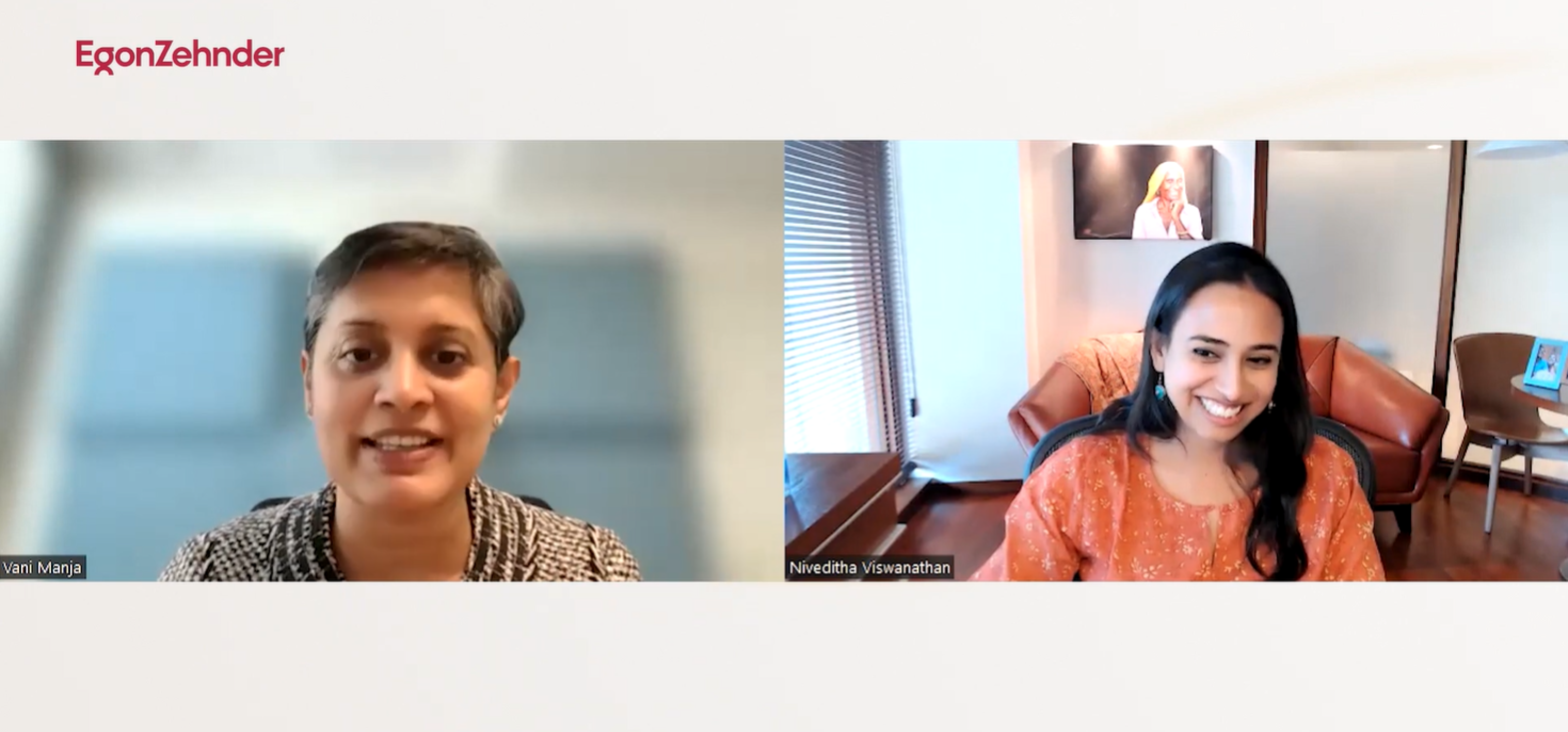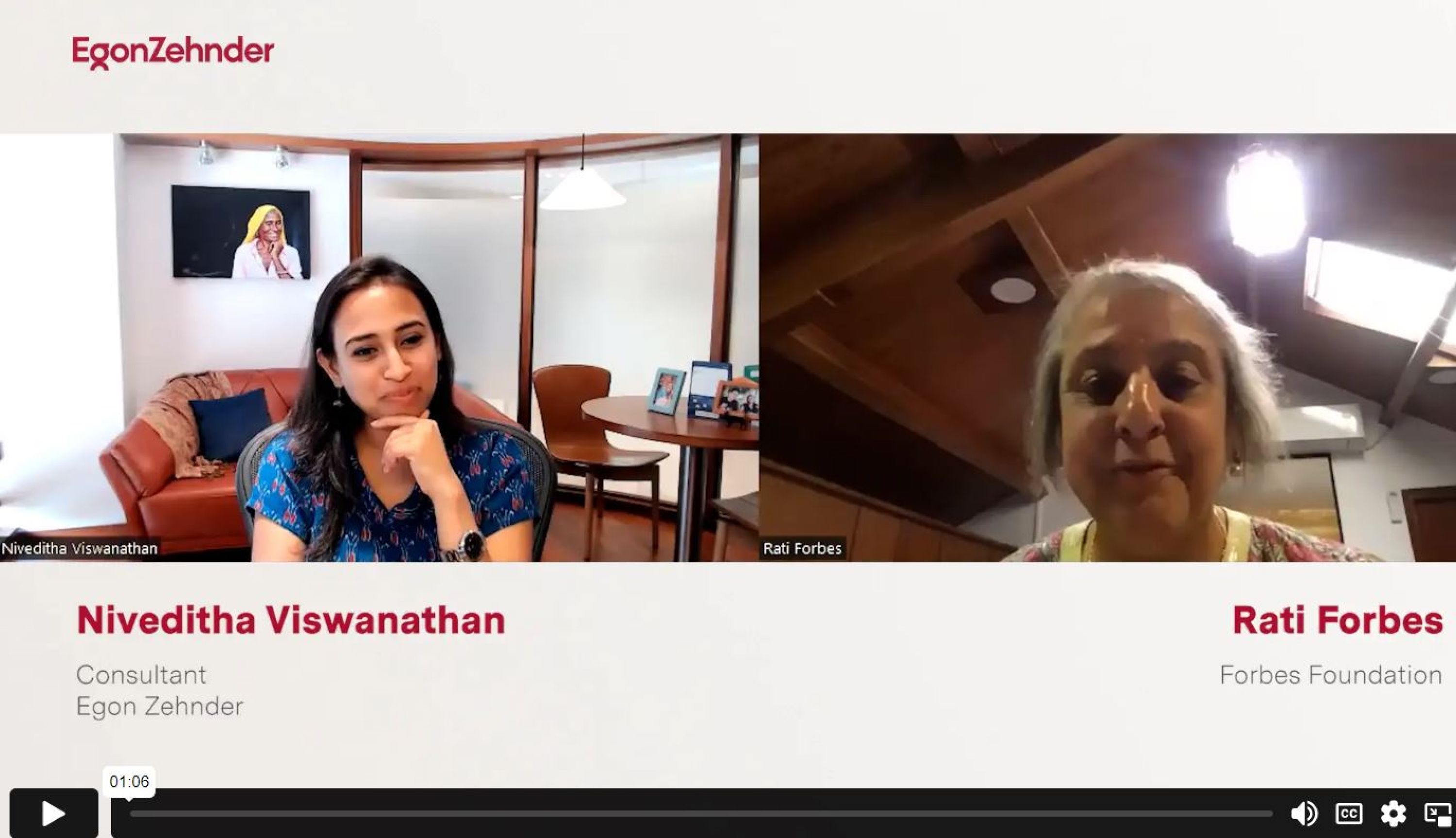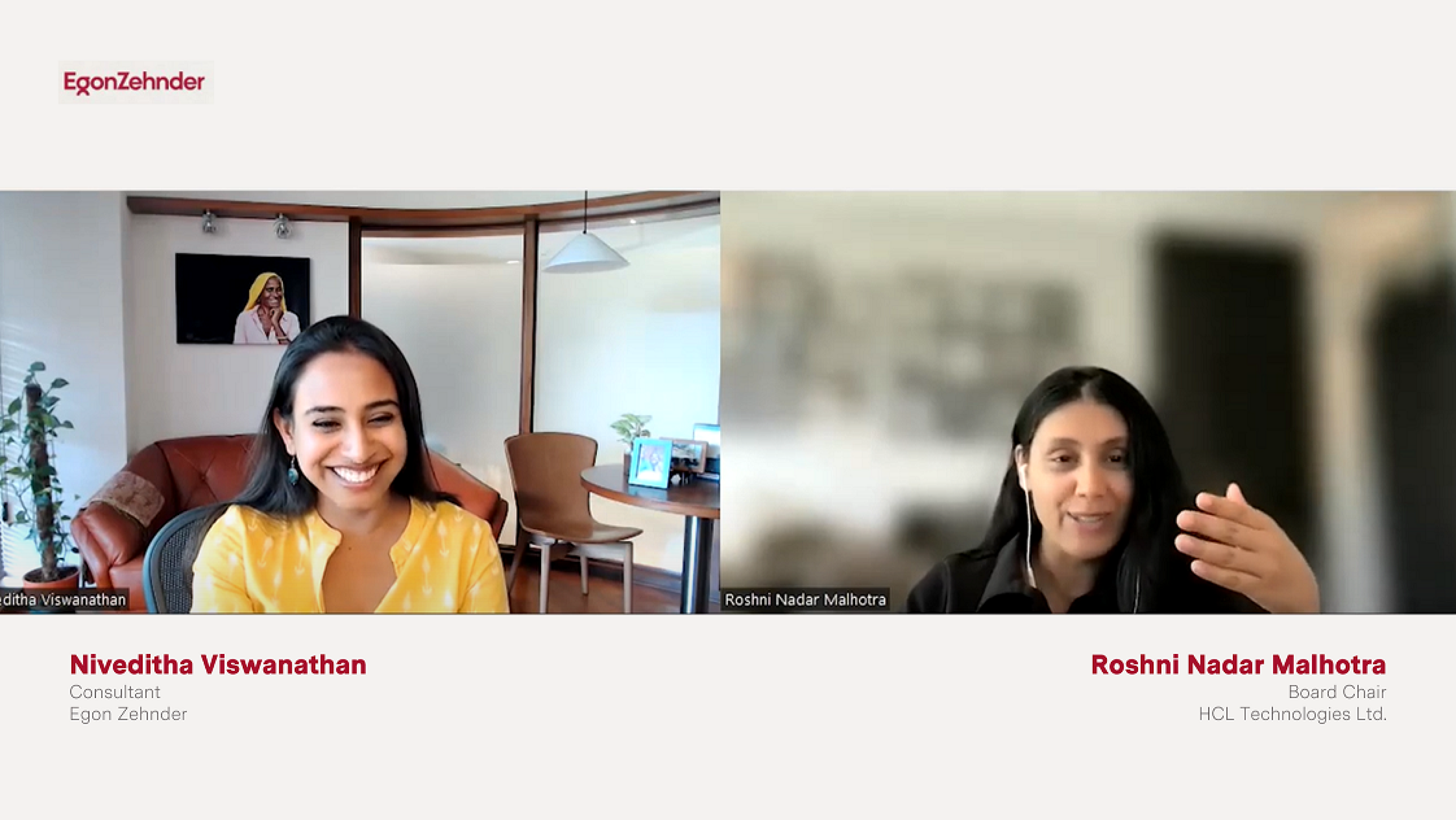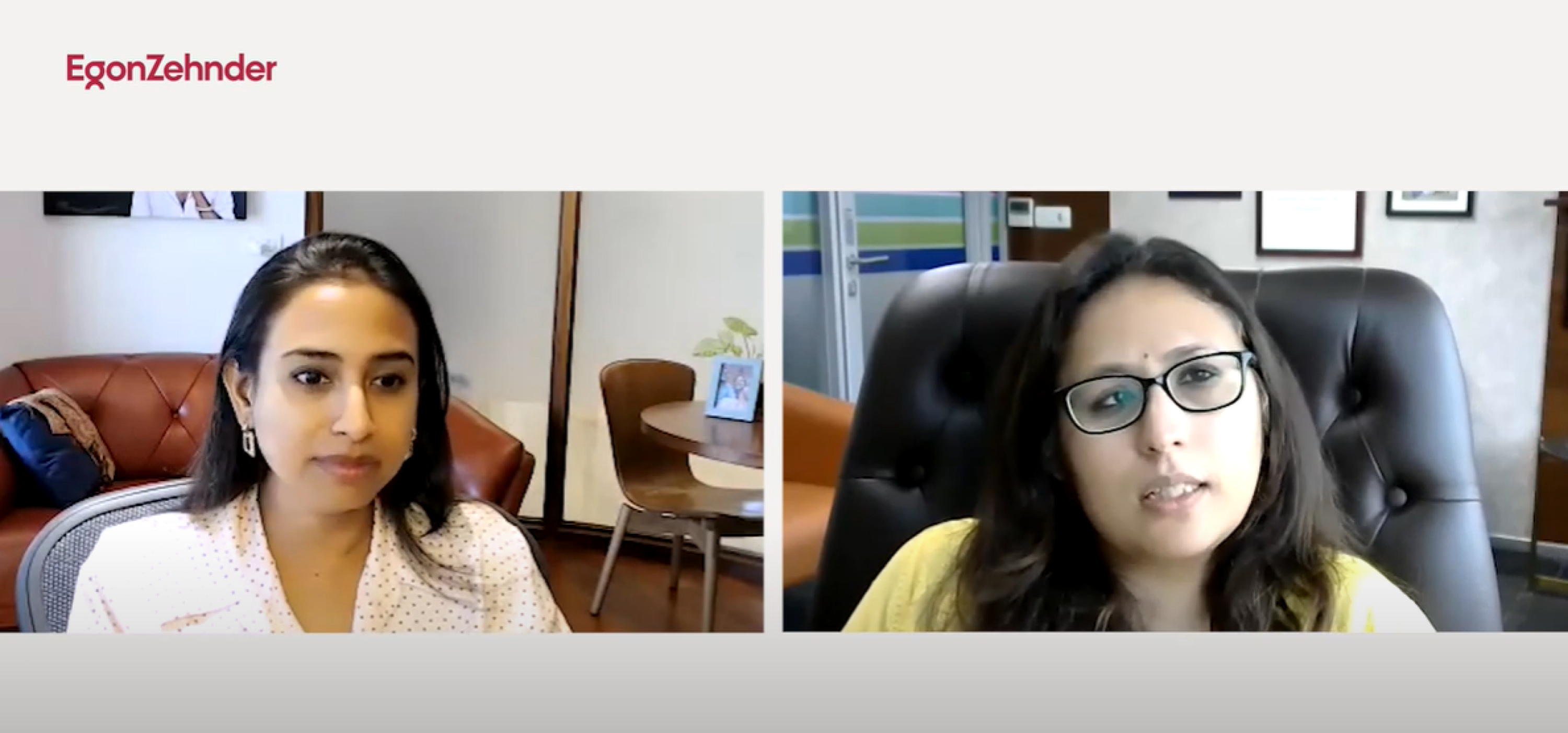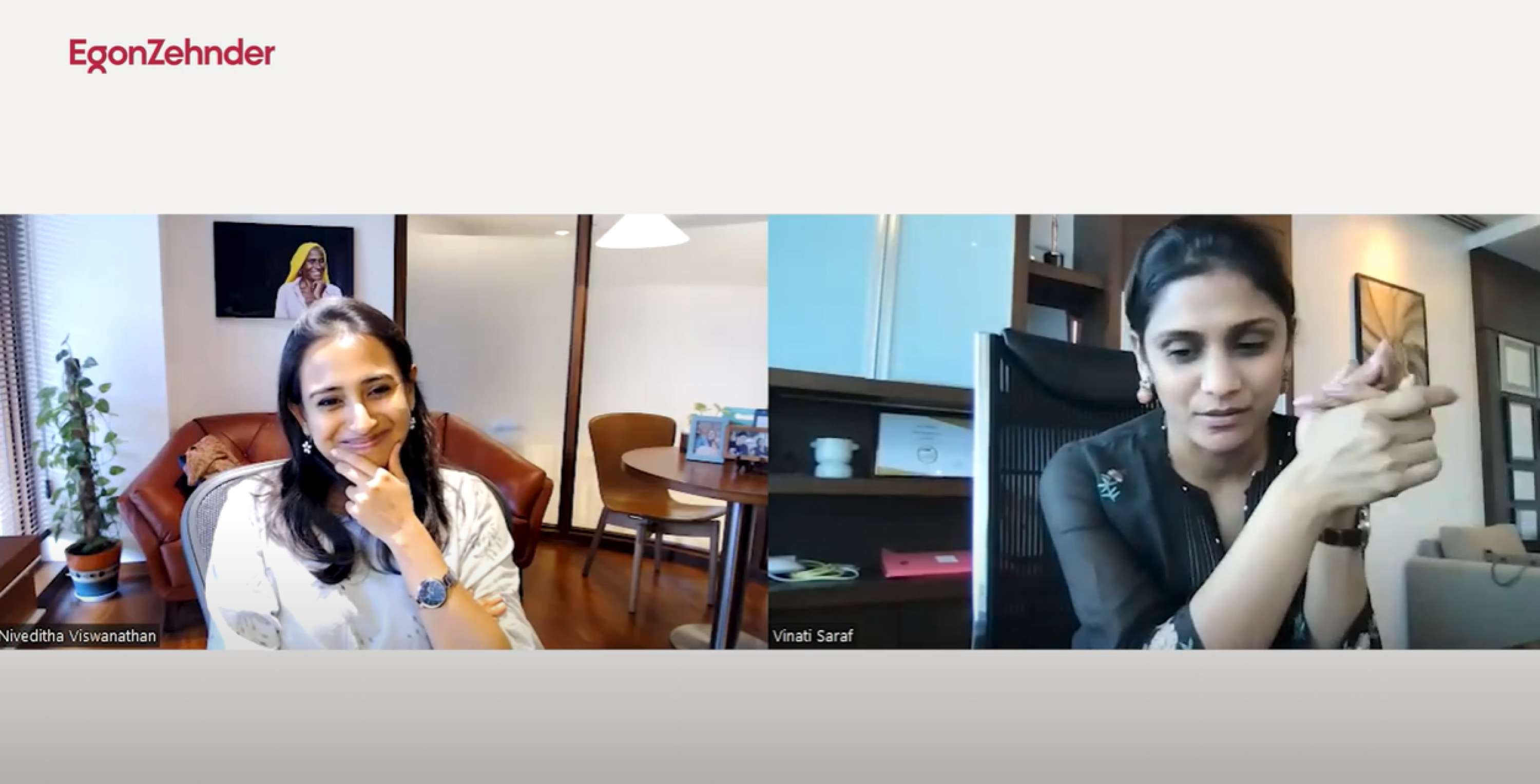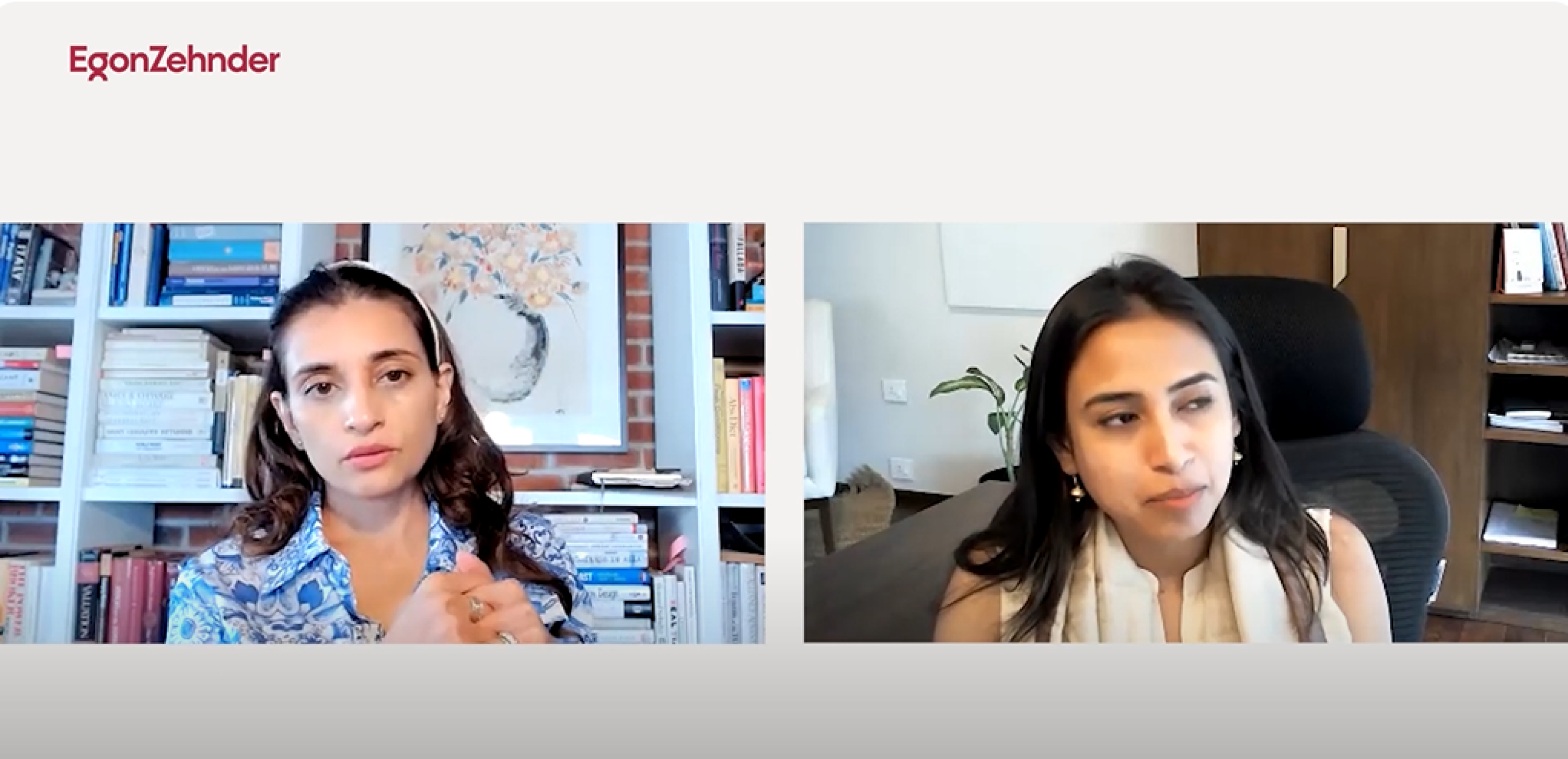Celebrating women in leadership this International Women’s Day, we bring the highlights from our conversations with exceptionally accomplished female leaders from versatile industries and fascinating life stories, who continue to pave the way for other working women.
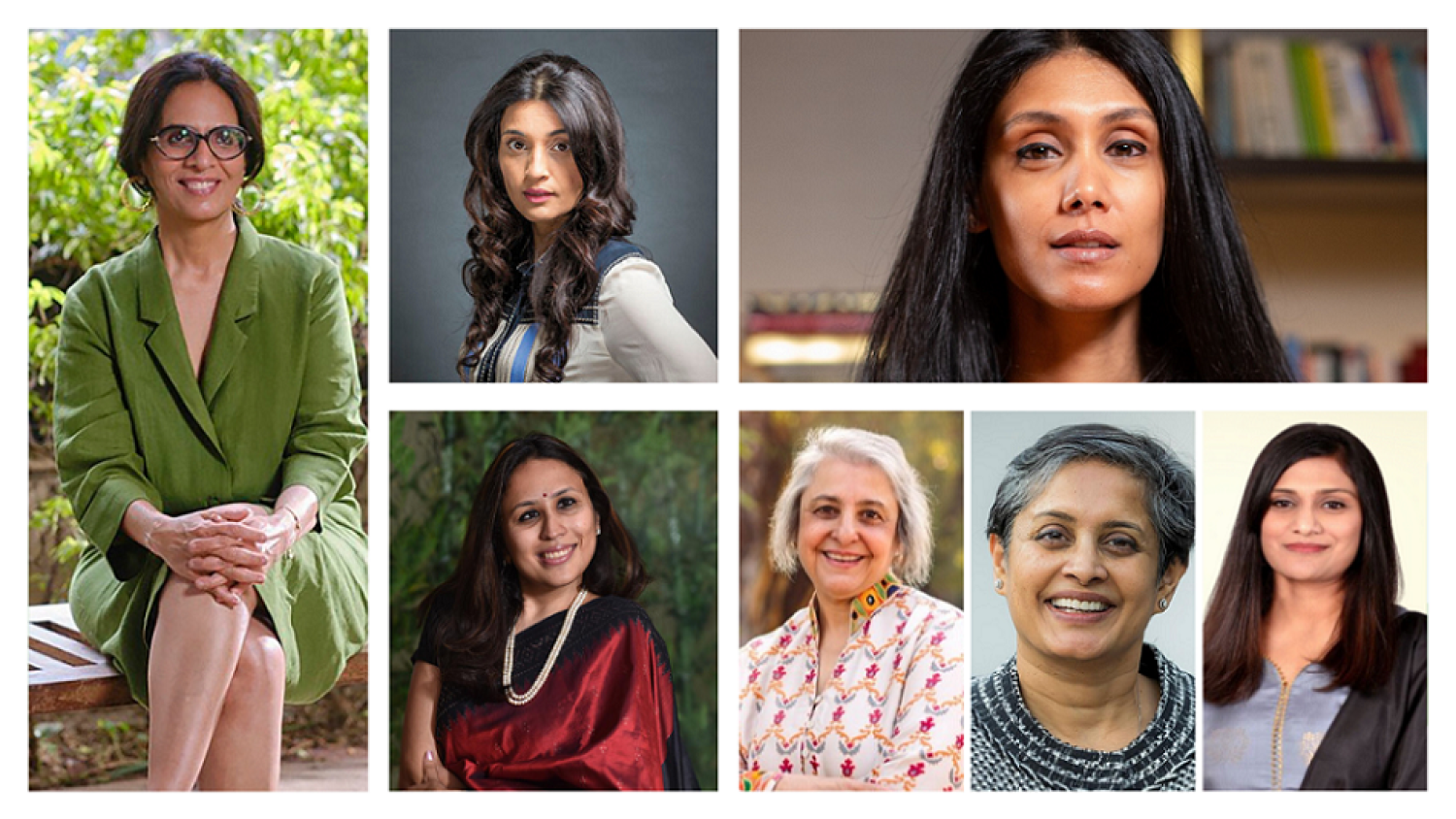
Vani Manja
Country Managing Director & Head of Human Pharma UK & Ireland, Boehringer Ingelheim
Being among the first women to ever enter the Indian Army must not have been easy. What lessons and changes from that time have stayed with you?
Dealing with the fact that superiors, peers and sometimes also the soldiers were trying to figure out how to accept women as officers, peers or leaders was complex and often challenging. It was a journey of proving myself each day, in the face of physical, emotional, and psychological demands. But this put me on a track of striving for clear goals and aspirations, working towards them and achieving them. I learned to be comfortable being uncomfortable.
Does constantly striving for excellence exhaust you? How do you cope with disappointment?
I am energized by knowing that I have done the best I could in whatever I undertake. Yes, striving for excellence can sometimes be exhausting, but the knowledge that I have put in my best, and seeing the immense impact this can bring to the organization and the teams I lead - or am part of - gives me the energy to keep going.
That said, I have learned over time to no longer seek constant perfection, and not be too tough on myself as well as others. Ultimately, we are all works in progress as human beings and organizations, and failures along the way can help us get better. This is something I try to teach my son: to strive to do his best but not chase perfection, and importantly to be kinder to himself.
Rati Forbes
Director at Forbes Marshall and Head - Forbes Foundation
Your organization, Forbes Marshall, is in a what we might term ‘male-dominated-industry.’ And yet you have a higher ratio of women than average. What has Forbes Marshall done and role modelled?
Many companies have mandated gender diversity, which leads to women being forcibly hired in supporting functions, but I personally do not ascribe to that approach. Women should be recruited because they add the same value, skills, and competencies as men. I think we still need to eradicate the biases that people have at the time of recruitment. Forbes Marshall is not perfect, but for an engineering company, we have more females in our firm vis-à-vis industry averages, which is quite subpar at less than 10 percent.
We just treat women to be as capable as men, and in fact we treat men the same way we treat women! We try to be as flexible with men as with women by applying equal opportunities and policies across the board – the same areas of flexibility or parenthood approach is applied to both men and women in our organization.
Roshni Nadar Malhotra
Chairperson, HCL Technologies
In those early leadership years, what did you find new or hard?
I am a very private person and was perhaps even a little reclusive. But to be a part of HCL and the leadership team, I had to open myself a little more. If you want people to put themselves out there and excel, you need to lead by example. Being comfortable with being uncomfortable is something I worked on and still do every day. Also, being one of the youngest in the room teaches you a lot, if you are willing to observe and learn.
As you think about an employee-centered organization, what are you focusing on?
While we do a variety of things, there are two initiatives that I am driving personally. First is what we call our ‘TechBees’, where students from grade 12 come to us, and we now have around 8,000 TechBees at HCL Tech. Our program trains these students for nine months and deploys them in billable roles. They are doing as well as our other engineers! For the India TechBee program, we partnered with BITS Pilani, and these young professionals pursue their BTech degree on weekends. It’s a bright and wonderful cohort, with low attrition, and they set us up for many good ideas in the future. That’s the start of a cultural shift. That’s the definition of an agile organization.
At HCL Corporation, I am also launching a program at the Shiv Nadar University for young female professionals to create future leaders, professionals and board members in India, focusing on the average age of 45 to 55. We need to build a workforce of women who think of themselves for a longer runway and playing various roles professionally. Just like Shiv took a chance on me, I need to take chances on these women too.
Anita Dongre
Founder, House of Anita Dongre
As the first woman to break the norm and step into the working world in your family, what early insights have you carried with you?
Ever since I was young, I realized that the true power was with those who earned money in the house. It made me subconsciously dogged to become a financially independent woman.
My family was very supportive overall, but when I shared that I wanted to start a career, the resistance came thick and fast. I had pursued my design degree with the dream to create a career. Eventually, everyone had to give in, as I stayed strong and committed to my goals. It took adjustments on all sides, but I am glad I stayed the course. Today, my younger cousins leverage me as an example to pursue their own goals and dreams. That feels good and worthy.
In the world of fashion and design, has it become a level playing field for women?
The conditioning over centuries is for women to be less, to expect less, to be subservient and not ask for more. Even though I was always independent, there have been times when I was not assertive or made my voice heard. I think women today are on the journey toward changing that. Women now understand that we are as good as any man in terms of opportunities, salaries, and expectations in life.
Radhika Gupta
CEO of Edelweiss Asset Management Ltd.
Where do you draw the line between giving something a shot vs. realizing, ‘it isn’t for me!’ – when do you know you have hit a wall?
My answer to this has changed over time. When I was younger, I was figuring myself out and had my own set of challenges and confidence issues, hence decisions took much longer. Back then I was just diving into the pool – swimming, struggling, figuring it out and then finding the next opportunity.
Today I am a lot clearer. I am clear about what works for me and what doesn’t. What’s negotiable and what’s not. My experience over the years has given me both self-confidence and self-awareness.
Being the youngest CEO in India leading a fortune 500 company, what part of your identity has shifted in being a CEO?
Being a CEO for the last six years has changed the person that I am in so many ways. I always thought of myself as a strong individual and performer, someone who would never shy away from taking accountability. You could throw me as much work, and I would happily carry the load. Delegation is not something that comes by easily to me, but now I have learnt to share the load.
Secondly, I used to despise tough conversations and avoided conflict but being an effective CEO means addressing conflict on a daily basis. I went from a conflict avoider to a conflict addresser.
I was since childhood a shy and reserved person, but not anymore. I am actually a very different version of myself after becoming CEO.
Vinati Saraf Mutreja
Managing Director and CEO of Vinati Organics Ltd
It’s not every day that I encounter a female leader sitting at the other side of the table when it comes to a chemicals company. How has being female and a young leader shaped your approach?
I have realized two things: One, in our industry (manufacturing), gender matters very little. It’s all about the product, and ours is very simple. What truly matters is the pricing and quality. Beyond that, the customers do not care as it’s a very transactional B2B business. I realize it’s the same within your team. Externally, if you know what you are saying, and you make objective arguments, then within a matter of minutes, they’re over any potential bias.
The larger challenge is being a young leader. It’s an industry where experience is looked up upon and that matters. That is a bigger challenge to overcome than gender, in my experience. Being young doesn’t bother me anymore. Initially, I realized that I had to know more than what I was expected to know, because anything could be thrown at me, and I better know the answer. But I would say that those days are behind me; now, I’m almost 40 and somewhere that hurdle has been crossed.
Aditi Kothari Desai
Vice Chairperson, DSP Mutual Fund
You are passionate about women’s financial independence and women taking charge of their lives and career. Could you tell us more about that passion?
I focus a lot on women’s financial independence and also creating their own safety nest. Once women have a career and a salary, they should be investing it on their own, and not depending on husbands or fathers or brothers. I also would like women to take a look at their overall lives and build a career, not a job. That framing might help them make the right trade-offs.
It’s very important that women distinguish their career and personal life. I’m very proud of the women who manage children and work. Women make great leaders. If you have the opportunity, you must go out and make a difference. You need to push yourself on the days you’re not ambitious. I believe in Karma, and that we’ve all come into this world to execute duties and we must do all the duties to the best of your abilities. I also abide by Nishkam Karma, in the sense that you should put the blinders and do what you must and do it well, whether it’s mothering, working, or being a wife; or all of those.
How would you like the world to remember you?
want to build something that’s going to make a difference in the society. The reason I talk about investment management versus investment banking is because I wanted to make a difference in the lives of everyone. From the security at our apartment to my entire staff—whoever comes to my house is asked to start their SIPs which they cannot touch till they retire. We have heard such fulfilling stories from the people who benefited from this in the past 15-20 years. For me, that is the legacy I want to leave behind.
In addition, I want to be able to make a difference in the lives of people in smaller towns. My new venture is software services for the mutual fund distributor who operates in these towns. I believe in the power of technology to scale, and these are the tools I’m building.






